Mortgage Definitions
Mortgage Definitions: There are enough terms and other legalese to learn and memorize when taking on the task of securing a mortgage, buying a piece of real estate, or anything in regards to this subject. The following is a breakdown of the most basic mortgage subjects and their meanings (defined by The Federal Reserve Board and HUD).
Adjustable Rate Mortgage (ARM): A mortgage loan which adjusts to changes in interest rates. As rates change, ARM monthly payments increase or decrease determined by the lender, but generally subject to a maximum/cap.
Annual Percentage Rate (APR): A rate calculated using a standard formula. Shows the total cost of a loan – interest, points, mortgage insurance, and other fees associated with the loan.
Assumable Mortgage: A transferable home loan (from seller to buyer). There may be a fee with the transfer.
Balloon Mortgage: The balloon generally offers low rates for 5, 7, or 10 years; then the balance is due or is refinanced by the borrower.
Closing (settlement): The property is formally sold and the title is transferred to the buyer; who is responsible for the loan obligation.
Closing Costs: In addition to the property sale price to cover the transfer of ownership at closing and are detailed to the borrower after a loan application is submitted.
Conventional Loan: A mortgage not guaranteed or insured by the U.S. government.
Credit Score: A number based upon credit history, used to determine ability to qualify for a mortgage.
Down Payment: Not part of the mortgage, generally 20% of the home’s purchase price paid prior to the loan commences.
Equity: The market value of the property minus the amount still owed on the mortgage.
Escrow: A neutral third party or account to hold documents and/or money for a real estate transaction. Ensures all conditions of the upcoming sale are met.
Fixed-Rate Mortgage: A home loan with a fixed interest rate; consistent payments throughout the life of the mortgage.
Home Equity Line of Credit: Generally a set second mortgage loan that allows the borrower to obtain cash drawn against the equity of the home.
Interest Rate: The percentage of interest charged on a monthly loan payment.
Lease Purchase: Designed to assist low-to-moderate-income buyers – first they lease a home, then they can exercise an option to buy. Rent = monthly rental payment + additional money credited to a down payment account.
Lock-in: A specific, guaranteed interest rate if the loan is closed within a specific time.
Mortgage: A lien on the property that secures the legal document outlining loan terms and obligations.
Mortgage Insurance: An insurance policy that protects lenders against a mortgage borrower default; primarily required for borrowers with a down payment of less than 20% of the home’s purchase price.
Offer: Generally a written tender by a potential buyer – indicating willingness to purchase a home at a specific price.
Private Mortgage Insurance (PMI): Affordable mortgage insurance programs for qualified borrowers with down payments of less than 20% of a purchase price.
Pre-approval: A lender commitment to lend to a potential borrower, as as long as the borrower continues to meet the qualification requirements at the time of purchase.
Prepayment: Full payment of a loan before the scheduled due date. In some cases, a prepayment penalty could apply.
Principal: The amount borrowed from a lender without interest or any additional fees.
Refinancing: A mortgage refinancing pays off one loan by obtaining another, generally done to secure better a interest rate.
Sweat Equity: Trading labor to build or improve a property as part of the down payment.
Title: Ownership of real property to the exclusion of anyone else’s right to claim the property.
Title insurance: Insurance that protects the lender or home buyer against any outside claims to ownership of the same property. This situation can actually happen if the person selling you the house does not actually own it. Most often this occurs due to faulty paperwork in some sale of the house in the distant past.
Title Search: Public record search to ascertain that the seller is the real owner of the property and there are no other claims against the property. Balloon Mortgage: The balloon generally offers low rates for 5, 7, or 10 years; then the balance is due or is refinanced by the borrower.



